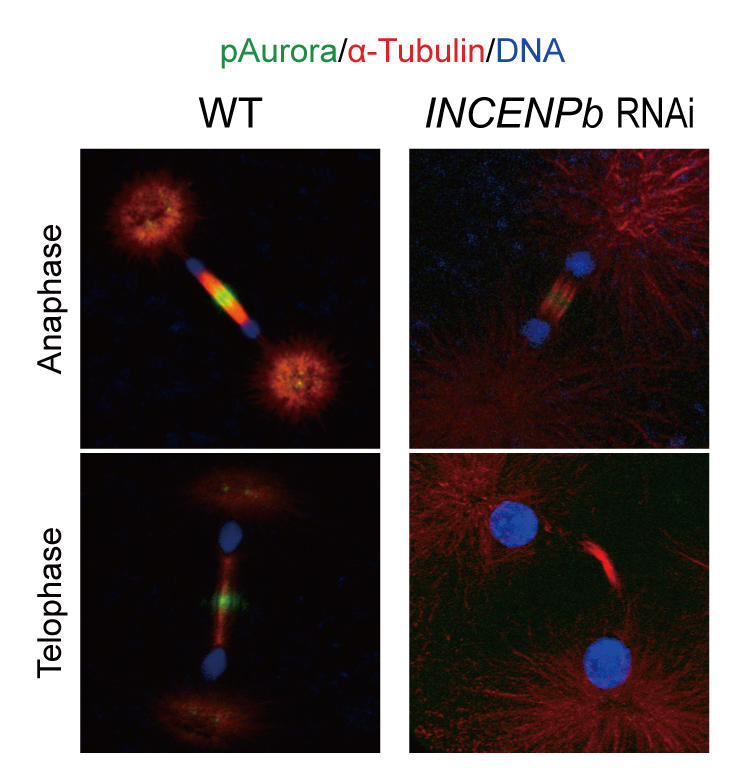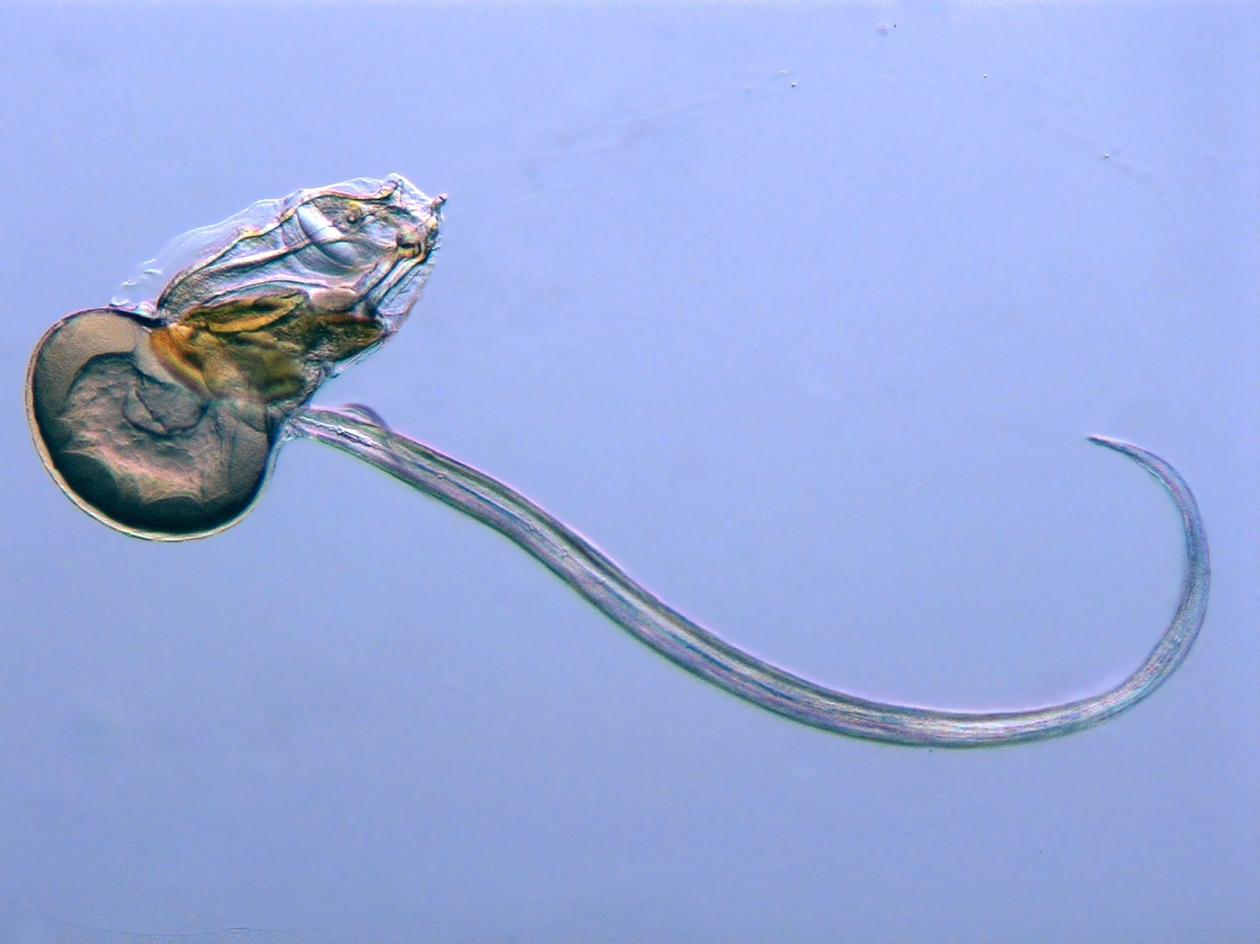News on the Cell Cycle
Duplication of a key mitotic regulator in Oikopleura with further division of tasks: a recurrent theme that makes sense

Main content
An article published by Eric Thompson’s group in the journal Cell Cycle reports that Oikopleura has two paralogs of the inner centromere protein, while other animals, including humans, generally have only one. Detailed functional analyses support distinct and complementary roles of these duplicates during mitotic cell cycles. Possible reasons for this are discussed in relation to the specifics of early embryonic Oikopleura cell cycles. Other studies of Sars Centre groups have shown that Oikopleura lost various developmentally regulated genes while duplicating quite a few of those that remained. Why such duplications may have been required to ensure proper development of this animal is an important and recurrent question, for which the present article is a new source of inspiration

The marine, planktonic, Oikopleura, undergoes very fast development and growth during an entirely pelagic life cycle. To do this it employs an array of cell cycle variants and its cell cycle regulatory toolkit has undergone numerous modifications, including gene amplifications and gene losses. In this paper, we show that duplicate, Oikopleura, INCENP paralogs have specifically sub functionalized tasks during M-phase of the cell cycle that the single INCENP protein carries out in other organisms. This reinforces key transitions between early (controlled by INCENPa) and late (controlled by INCENPb) M-phase events and may be part of adaptations to very fast early embryonic cell cycles.
This research was spearheaded by Haiyang Feng, a postdoc in the Thompson group.
- Can you tell us about your educational and scientific background and what interested you about working in the Sars Centre?
I did my master in Shanghai Ocean University and studied reproductive cell development in crustaceans. After graduation I worked as technician at the Dept. of Biochemistry, Fudan University. During that time, most of my research was on epigenetics in plants, mainly Arabidopsis and rice. I helped the students with diverse projects and learned many advanced techniques. My first wish was to improve my education. Fudan University has a Nordic Centre, where I came to know of UiB as a prestigious, marine, research-oriented University. I was always interested in developmental and cell biology a central research theme at the Sars Centre. I humbly applied for a PhD position in the Thompson group, and was very lucky to be hired. It ended up as a success for me.
- What are your main interests in science, and how do you see your current work correlating with these interests?
My main interests are fundamental biology questions such as chromosome segregation and genome rearrangement, as well as related broader questions over evolutionary scales. In this paper, we propose a new model to regulate chromosome segregation in a chordate species. This implies that evolution can always find alternative ways to solve the same problem.
- Why would you say this new paper is important in your current research field and what should be done after it?
In the field of cell cycle regulation, by studying the molecular pathways in regulating cell division and proliferation, scientists can discover potential targets for designing drugs in cancer therapy. Our study in an evolutionarily related species to human can provide informative insights as to which molecular pathways are conserved, and which pathways have diverged. Therefore, based on such comparative approaches, it may be possible to improve the design of anti-proliferative drugs. This can minimize cancer cells from escaping chemotherapy and make cancer therapy more fruitful. One future work is to study the mechanisms that regulates INCENP paralog switching on centromeres. Another avenue is to screen Aurora B targets that are specifically recruited to the version of the Chromosomal Passenger Complex that is organized on the INCENPb scaffolding paralog.
- What are your main interests outside science?
In my spare time, I like reading Chinese novels. My favorite writers are Eileen Chang and Hua Yu. I also like hiking in the mountains around Bergen. Hiking allows me to disconnect and refresh my mind.

